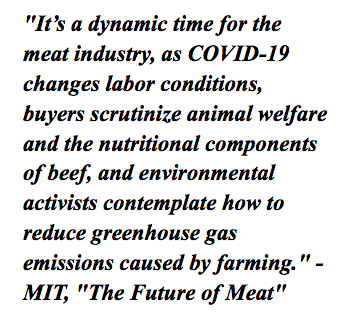By Gabby Esposito
May 2021
Online Journalism / UConn
The issues that arose in meat factories during the coronavirus pandemic exposed the fragility of human labor and the risk of depending on it. As the infection rates spiked among the workers in the meat industry, the plants were met with challenges in producing the same quantity and quality of meat. This became problematic given the dependence the country has on meat.

These events surrounding the meat industry during the pandemic only further brought to light already existing worries.
The unsustainable nature of the industry has led to the development of numerous plant-based alternatives which have risen in popularity. McDonald’s, Burger King, Dunkin’ Donuts, and White Castle, are some of more popular fast-food chains which now offer vegan meat options.
The rise in plant-based alternatives during the past couple years, is accompanied by a decline in meat industry sales. According to the Food and Agriculture Organization of the United Nations, global meat production will decline in 2020 for the second year in a row, and only the third year since 1961. However, plant-based meat sales rose 264% in 2020.
Despite what happened last year in their attempts to keep meat sales up, companies like Tyson have recognized the unsustainability of their industry unless meat is redefined. In 2016, Tyson bought a 6% stake in plant-based company Beyond Meat, however, in 2019, the company decided to sell it so that they could start venturing into producing their own plant-based meat.
So, will the meat industry actually decline? Below is a conversation with PETA Senior Educational Project’s Manager Kenneth Monteville on why the meat industry is not yet more of a concern as well as the reality of its future.
